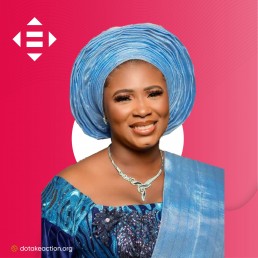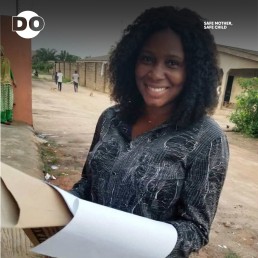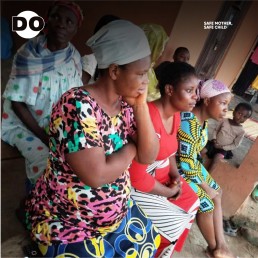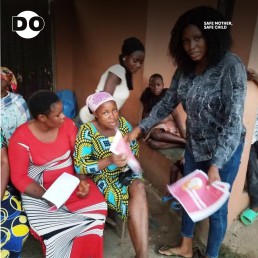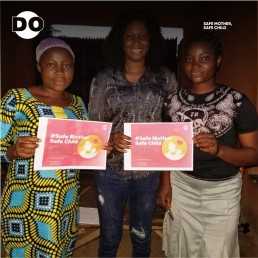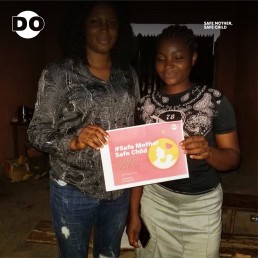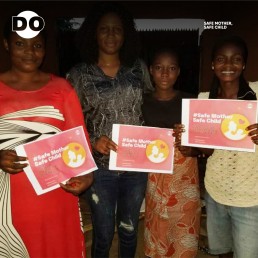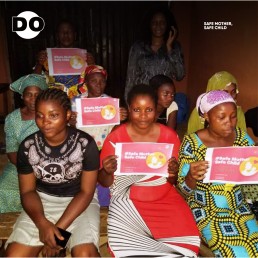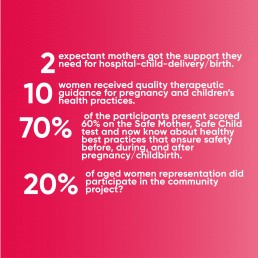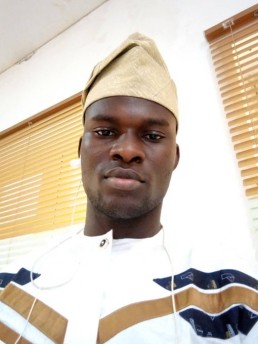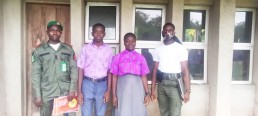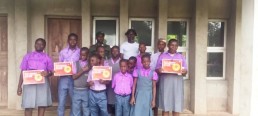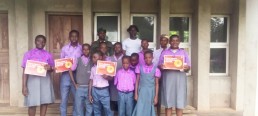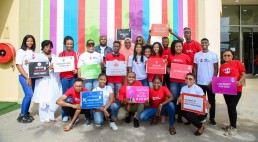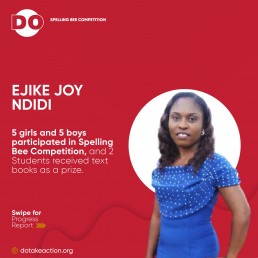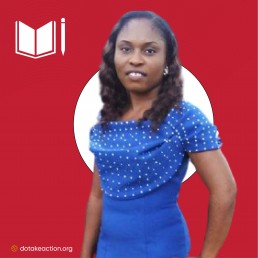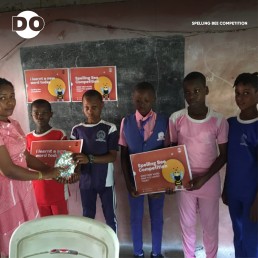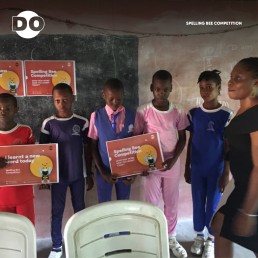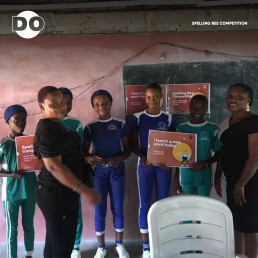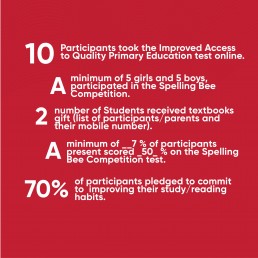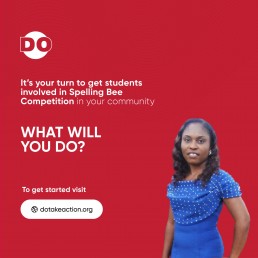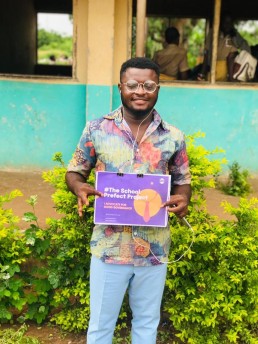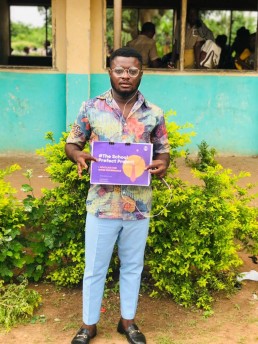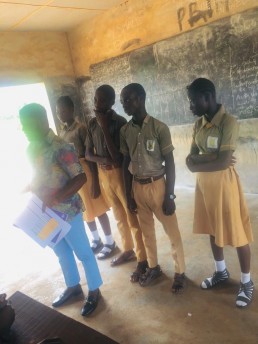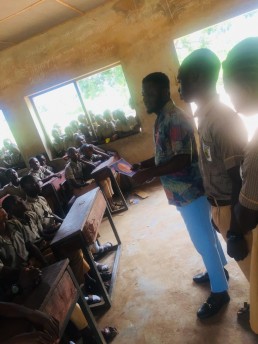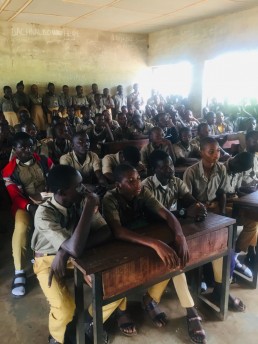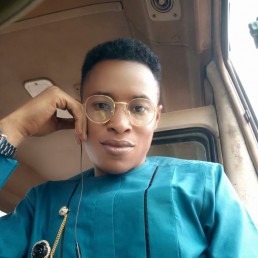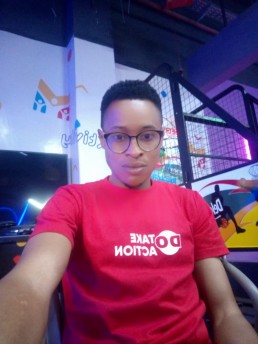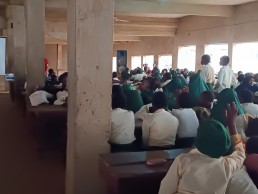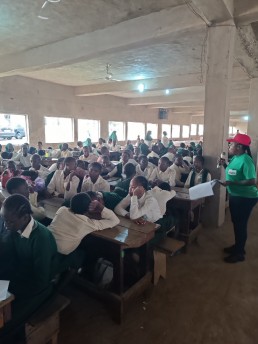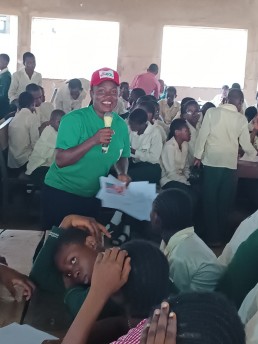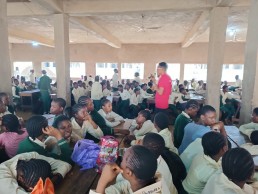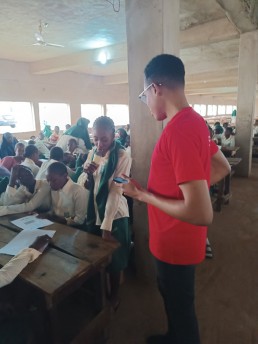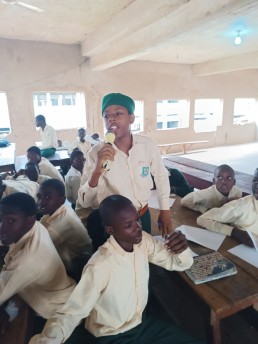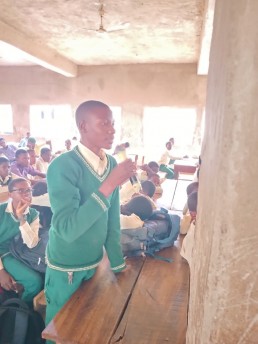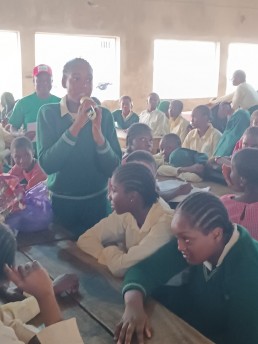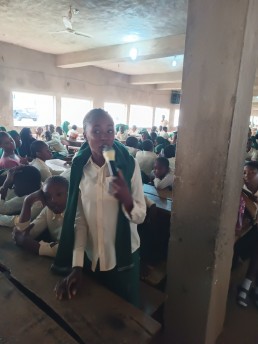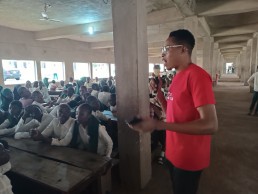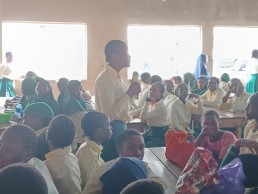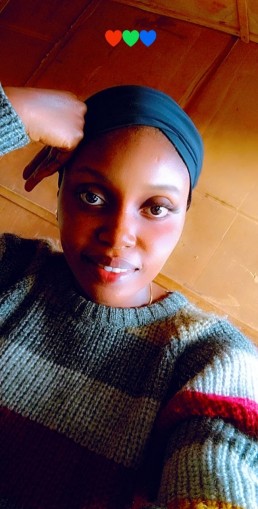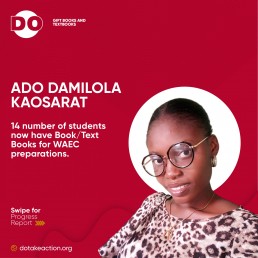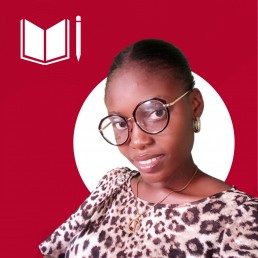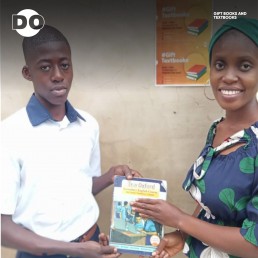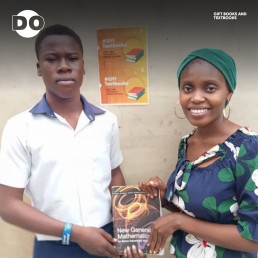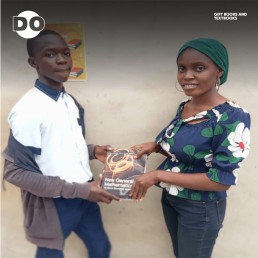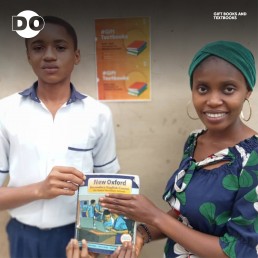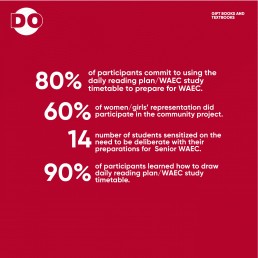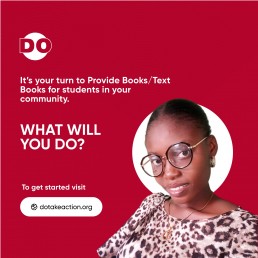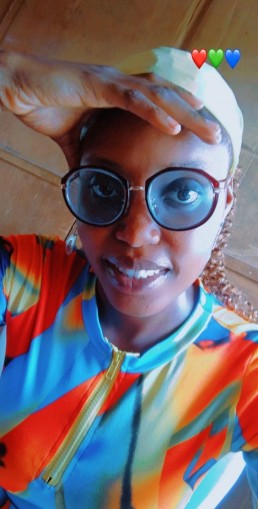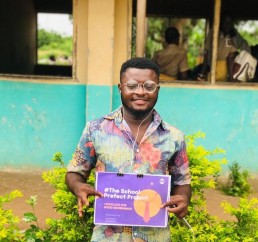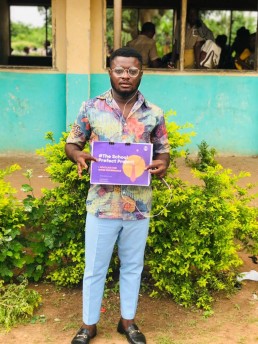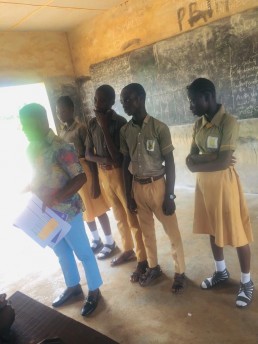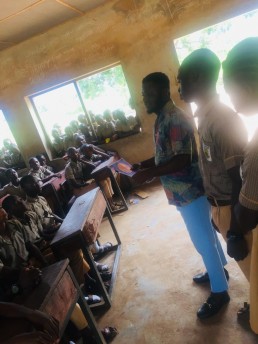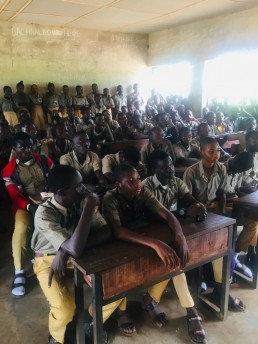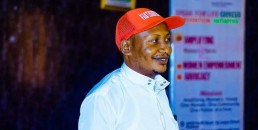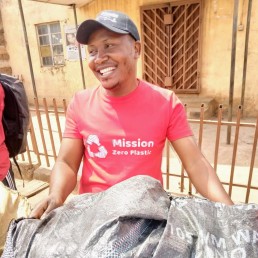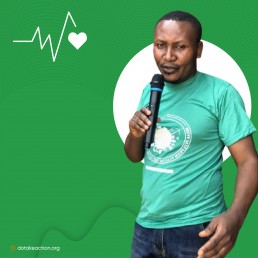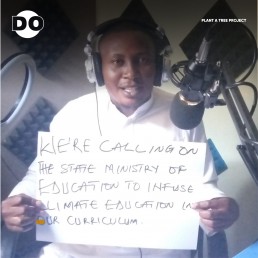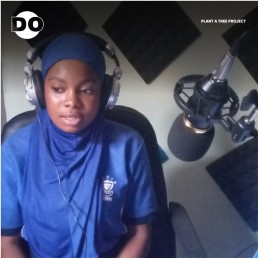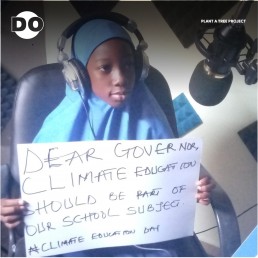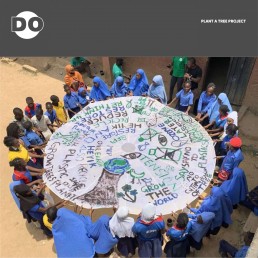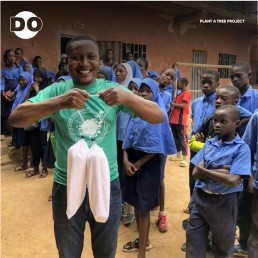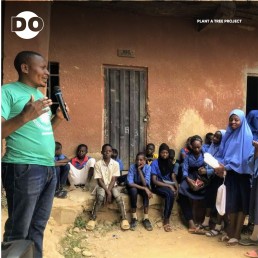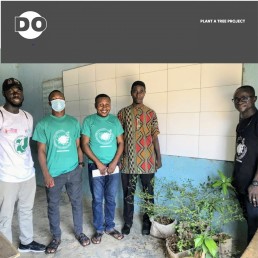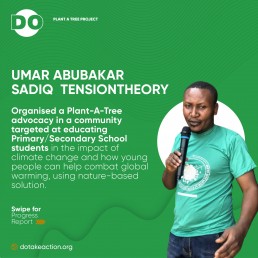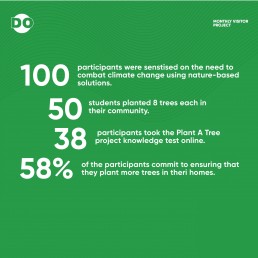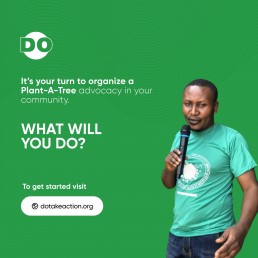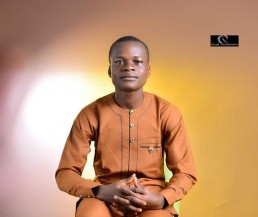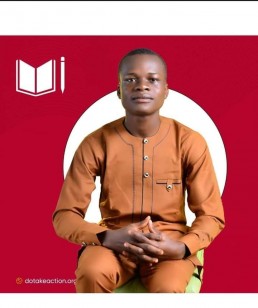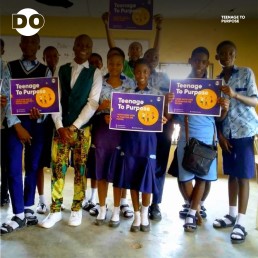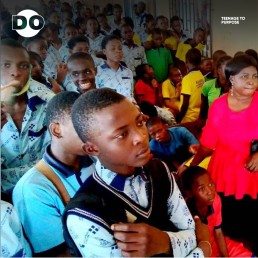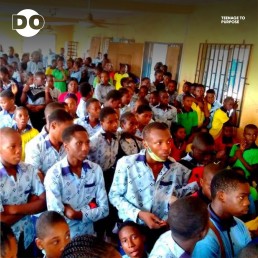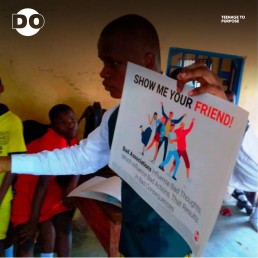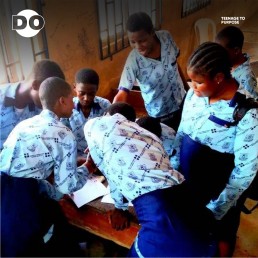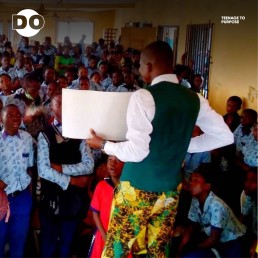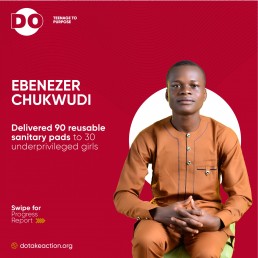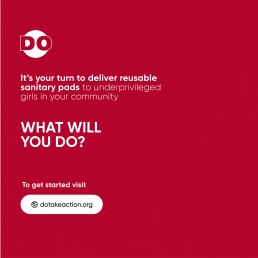GDC Stories: Arinola Olajumoke
“It is my belief that if women, especially those in rural and impoverished communities had a level of antenatal and postnatal knowledge, the rate of maternal mortality will be reduced” – Arinola Olajumoke.
Olajumoke is a Grassroots Development Champion passionate about personal growth. She is a graduate of Biology from Tai Solarin University. Currently, she is working as a customer care representative.
With the statistics of pregnant women who died from birth complications in Nigeria soaring through the roof, Olajumoke felt the need to educate expectant mothers on how to keep themselves safe and their child too, during and after birth.
She believes that if women, especially those in rural and impoverished communities had a level of antenatal and postnatal knowledge, the rate of maternal mortality will be reduced.
To that effect, Olajumoke launched the Safe Mother Safe Child project in Sabo, Owode, Idiroko. In the course of the project, she taught the participants personal hygiene, ante and postnatal care.
Olajumoke has taken action to curb infant and maternal mortality in her community.
Share her story to inspire someone.
Follow us for more stories from Nigerians taking action for sustainable development.
You too can make a difference in your community.
Click to learn how you can TAKE ACTION.
#DoTakeAction #GDCStories #GDCTakeAction
GDC Stories: Oyedemi Abiodun Oluwaseun
“I love to treat everyone right and equal by the law. I dislike injustice, impartiality and brutality. I fight for human rights” – Oyedemi Abiodun Oluwaseun.
Oyedemi is a Grassroots Development Champion passionate about equal rights, justice and fairness. This is partly the reason he joined the Cadet Network Nigeria.
He is a student of Fisheries Production at Olabisi Onabanjo University.
Having observed the trend of harassment, brutality, injustice in his community, Oyedemi executed the project “Stand, Know your Right and get Help” at Oriade Comprehensive High School, Oriade, Ayetoro, Yewa North LGA.
In the course of the project, Oyedemi taught the students on Fundamental Human Rights, Their rights as citizens, and how to solicit help without fear, even in the face of threats.
Oyedemi’s project has informed the civic ignorance of the participants, and emboldened them to demand for and stand on their rights.
Oyedemi has taken action to curb civic ignorance and injustice in his community.
Share his story to inspire someone.
Follow us for more stories from Nigerians taking action for sustainable development.
You too can make a difference in your community.
Click to learn how you can TAKE ACTION.
#DoTakeAction #GDCStories #GDCTakeAction
Incase You Missed It: Stories of Grassroots Development Champions that give us hope in Nigeria
Hello Doers,
Last month we started our 60-Day GDC Stories featuring Grassroots Development Champions that have executed projects in their respective communities.
The purpose of the series is to encourage and celebrate our GDCs while inspiring more youths to get involved in bringing sustainable development in their communities by taking action on cogent issues in their communities.
Today, we are on the 27th episode. It has been a jolly ride.
Most of our featured Grassroots Development Champions are getting recognition for championing change in their immediate community for the first time; it is exciting to watch.
The appreciation has been massive. The goodwill messages keep rolling in. And our GDCs are really high on their emotions.
Just in case you have not been following the series, here are some of the stories of our Grassroots Development Champions that give us hope in Nigeria…
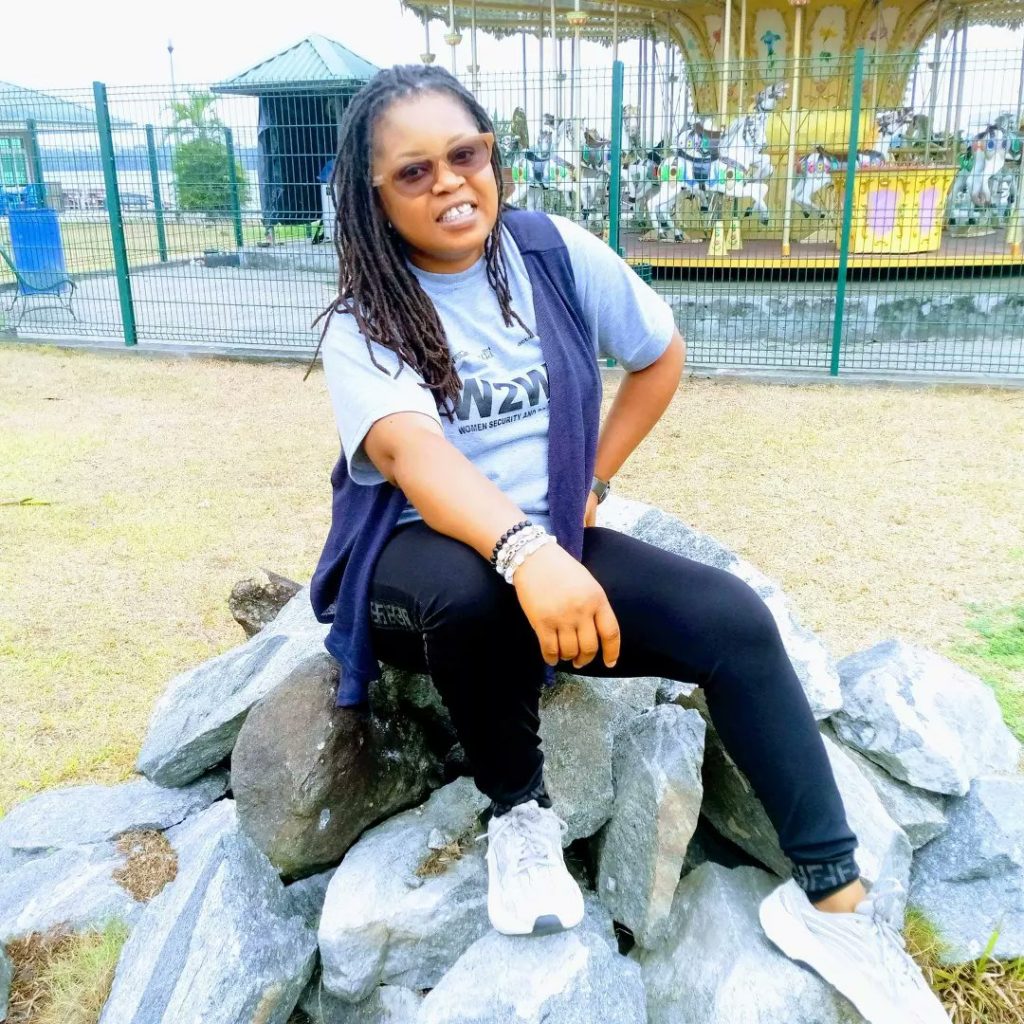
“I studied technical education at Cross River University of Technology, Calabar, because I wanted to be a teacher, but the negative experiences I had as a child motivated me into social work. My experiences gave me the passion to help women have a better life, live in a better world and be financially stable with good skills that will protect them from gender-based violence.” – Uwakmfon Archibong Nsa.
This is the story of Uwakmfon, a graduate of Technical Education from Cross River University of Technology, Calabar, who ended up as an advocate for gender equality.
Click here to continue reading.
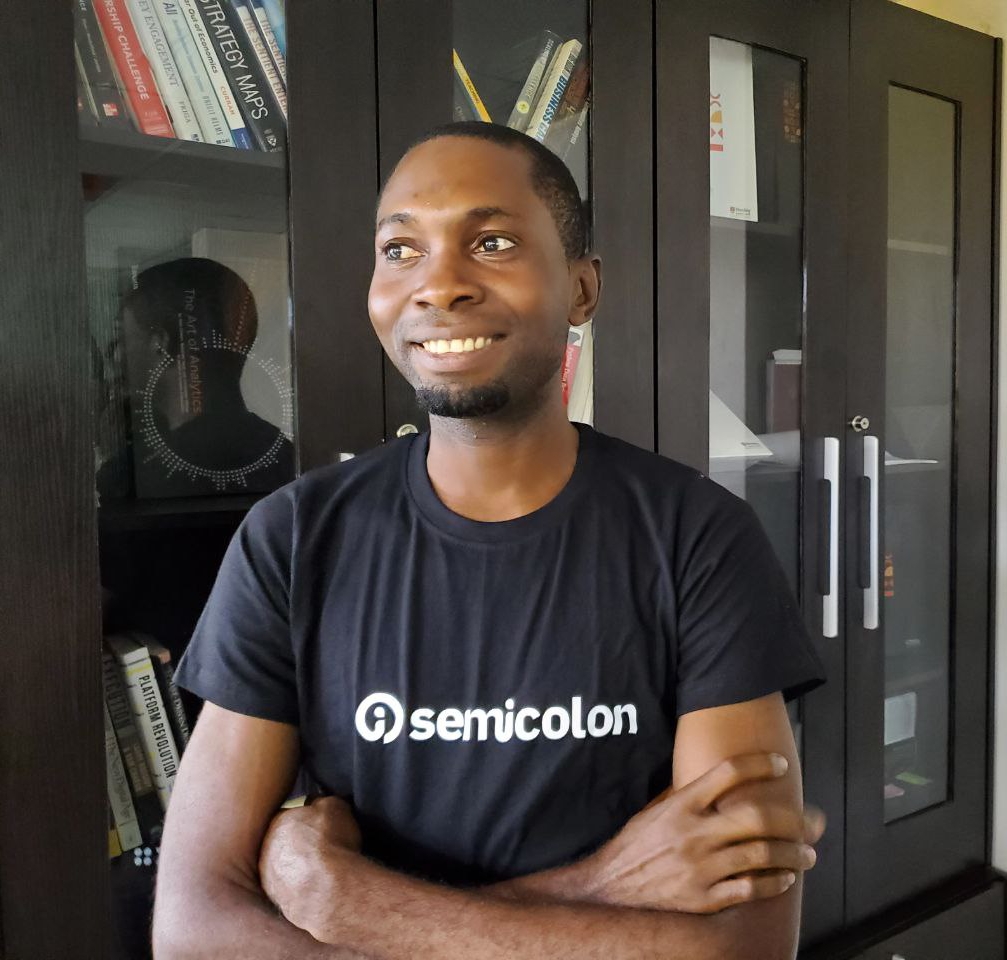
“As a programmer, I know the stress that comes with the job. Many tech people don’t have the luxury called fun. There is the imposter syndrome where achieving a task can be daunting especially when the task is not proving successful.
I chose the project on stress, suicide and depression because so many people go around with so much going on with them which they won’t tell anyone even if asked. People have mastered the art of dying in silence. I wanted to contribute in a small way to improve the mental health of people in my community.” – Raphael Sani Enejo.
This is the story of Raphael Sani Enejo, a graduate of Trinity University of Asia in Quezon City, Philippines. He is currently working as a software engineer at Semicolon, Lagos.
Click here to continue reading.
#3 GDC Stories: Vera Uche Umejiaku executes a Clean-Up project at Dunama Secondary School, Lafia, during her NYSC service year as part of her personal Community Development Service (CDS).

“I believe in helping and uplifting others. It is imperative to note that, what people don’t know they simply don’t know and can’t make adjustments in their lives for a positive change.” – Vera Uche Umejiaku.
Vera is a Grassroots Development Champion driven by impact and legacy, making a sustainable change, and personal development. She is passionate about learning and growing, helping and uplifting others and living a good life.
Click here to continue reading.
#4 GDC Stories: Naziga Ledum Bariyima teaches the students of C.S.S Yeghe Democracy, Corruption and Good Governance

“My life’s vision is to raise young leaders who will be agents of change and transformation in their society and the world at large.” – Naziga Ledum Bariyima.
Naziga is a Grassroots Development Champion who derives fulfillment in teaching young people 21st century skills that enable them gain access to the global market thereby making them financially independent. His core interests are politics, entrepreneurship and nation building.
Click here to continue reading.

“My desire is to see that everyone regardless of background, creed and gender can make a positive impact and bring about the needed change in our nation and the world at large starting from their various communities” – Ohaju Obed Ifeanyi.
Ifeanyi is a Grassroots Development Champion who believes youths are blessed with immense potentials and capabilities which need to be harnessed and provided the necessary support so as to bring about a pivotal change in the Nigerian, African and global economy.
Click here to continue reading.
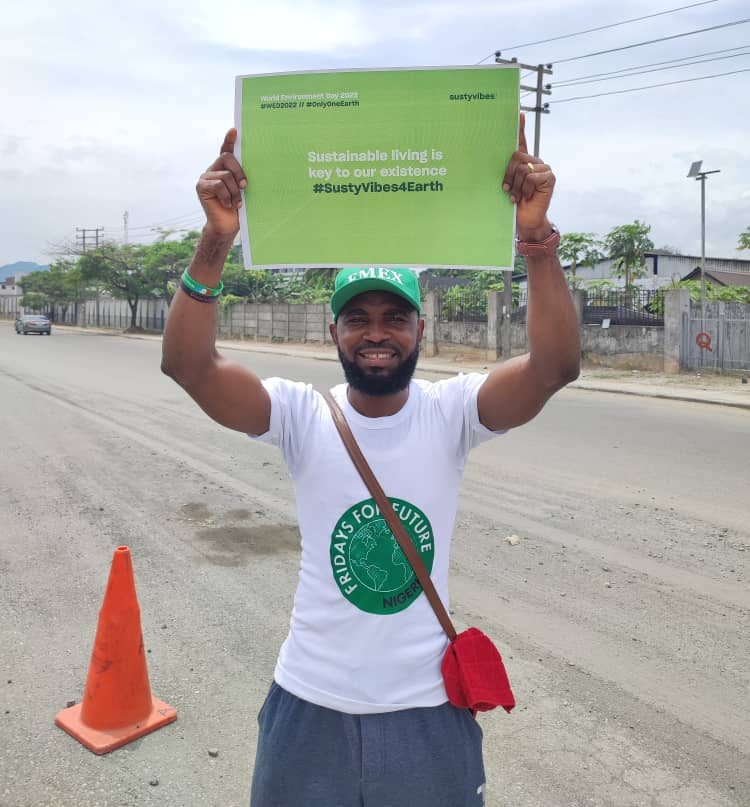
“I strive for a world where children and young people have a voice and reach their full potential as bright scholars, healthy individuals and future leaders in society” – Emeka Johnson Nwankwo.
Emeka is a Grassroots Development Champion passionate about youth development and creating a sustainable environment.
Click here to continue reading.
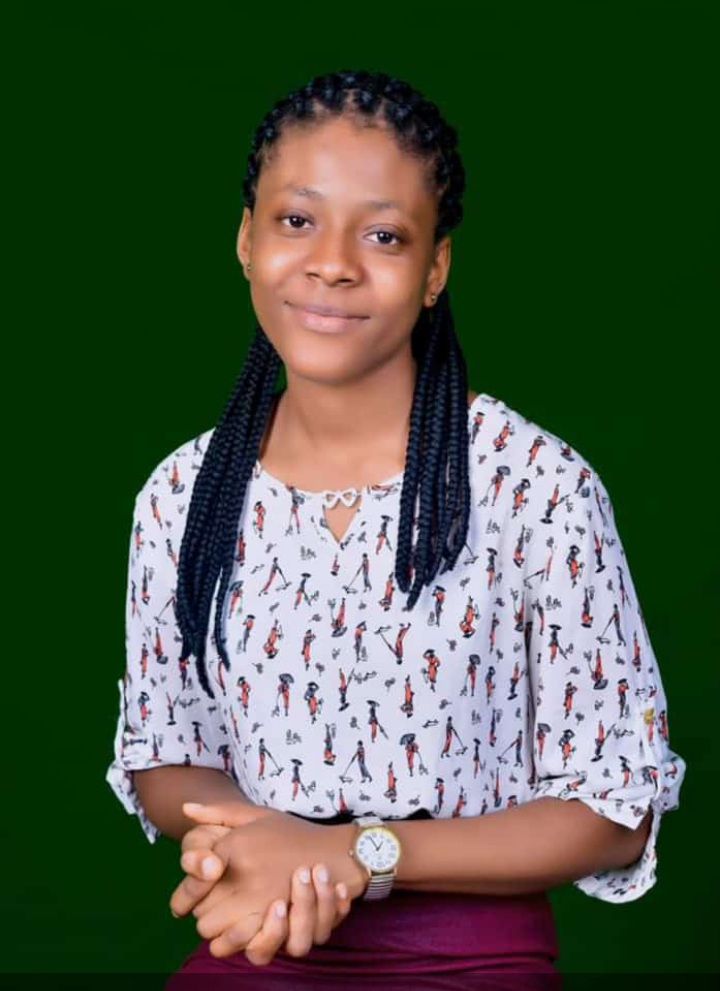
“I lost my mum at an early age and had to be passed around family members. It was tough growing up without a mother. One of the results was having nobody teach me about menstruation. So, the first time I saw the blood stains, I was so confused and in a state of dilemma. I didn’t know if I was sick or what. I was embarrassed, and I don’t want young girls to go through what I went through” – Esiobu Ngozika Peace.
Ngozika is a Grassroots Development Champion passionate about humanity and the girl-child. She is a 300 level student of English Language and Literature Education, Faculty of Education, University of Benin, Edo State.
Click here to continue reading.
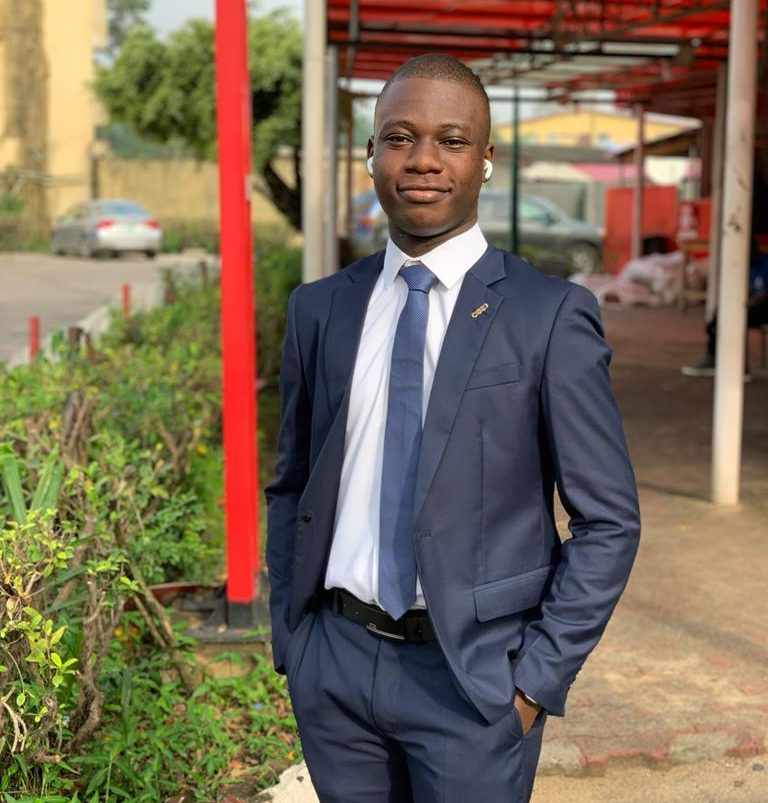
“I have a passion for educating people because I believe it’s the only lasting thing one can give to another person. I’m also confident that if the intellect of the average Nigerian is improved, the country would improve” – Oluwatobi Raji.
Oluwatobi is a Grassroots Development Champion passionate about creating new technologies and undertaking voluntary projects. He is driven by the idea of leaving the world better than he met it.
Click here to continue reading.
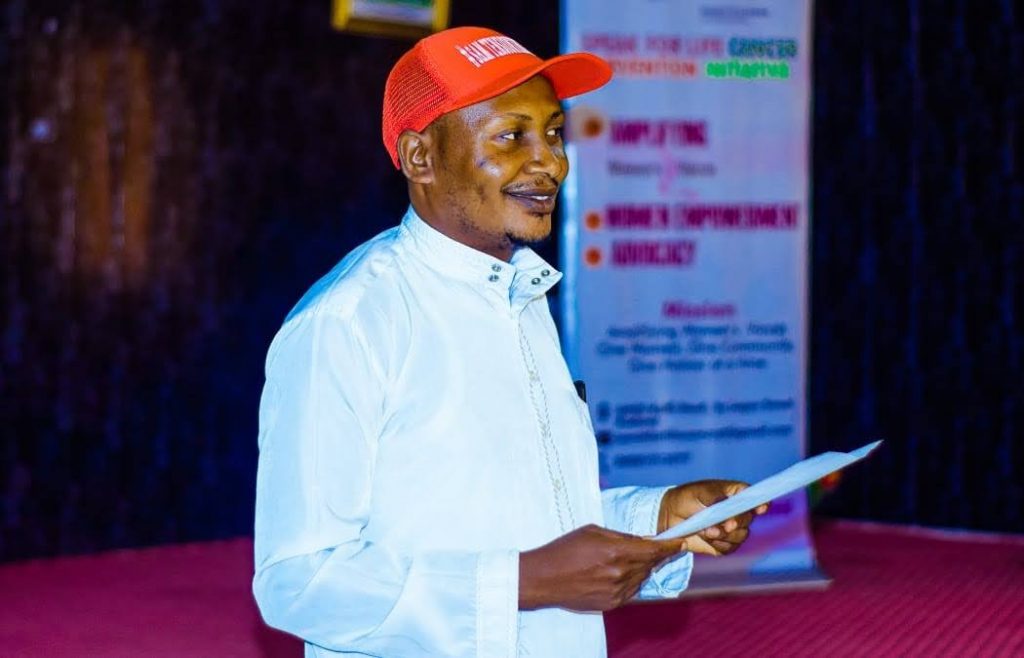
“I plan on reducing the tree deficit in my community by 0.8% annually till 2030” – Umar Abubakar Sadiq.
Umar is a Grassroots Development Champion passionate about the attainment of the SDGS in Nigeria, and particularly, in his immediate community. He plans to plant at least 50 trees annually till 2030.
Click here to continue reading.
#10 GDC Stories: Orjiakor Maxwell Austin executes a Climate Change workshop at Wisdom International School of Excellence, Sauka Lugbe, Abuja
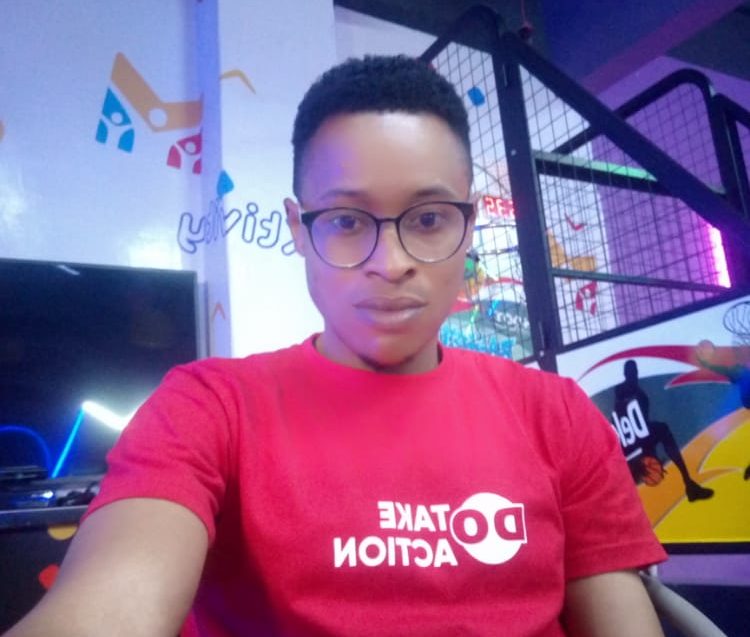
“I am passionate about climate change, the environment, water, sanitation and hygiene (WASH). We only have one Earth; it’s either we take care of it or it swallows us all” – Orjiakor Maxwell Austin.
Maxwell is a Grassroots Development Champion who wants to raise environment-conscious young people who will take action for a sustainable environment.
Click here to continue reading.
Would you like to be featured in our 60-Day GDC Stories? Become a Grassroots Development Champion.
GDC Stories: Ejike Joy Ndidi
“I am passionate about children and teaching. I was concerned with the system of education where I am serving currently, so I decided to reach out to the students” – Ejike Joy Ndidi.
Ndidi is a Grassroots Development Champion passionate about children, and teaching.
She is a graduate of Aquaculture and Fisheries Management from University of Ibadan. Currently, she is working as a teacher at De-trio International School, Akwa Ibom.
Being a passionate educator, Ndidi saw the low literacy rate in her community and decided to employ Spelling Bee to redress the situation.
To that effect, she launched a “Spelling Bee competition” at De-trio International School.
In the course of the project, Ndidi taught the students the importance of learning and encouraged them to imbibe the culture of reading and making research. The project was rounded up with a spelling bee competition and presentation of gifts to winners.
Joy has taken action to improve the literacy of her students.
Share her story to inspire someone.
Follow us for more stories from Nigerians taking action for sustainable development.
You too can make a difference in your community.
Click to learn how you can TAKE ACTION.
#DoTakeAction #GDCStories #GDCTakeAction
GDC Stories: Egwuoku Benn
“We need to help these young ones understand the importance of taking up leadership roles quite early” – Egwuoku Benn.
Benn is a Grassroots Development Champion passionate about nation building and creating lasting solutions to problems. He believes in catching the young ones and grooming them to be great leaders tomorrow.
He is a graduate of Electrical Electronics Engineering from Ogun state institute of technology. Currently, he plans events and parties for a living.
Considering the terrible ripples of bad governance in his country, Nigeria, he decided to take action to build a better Nigeria for the younger generation.
To that effect, Benn launched the project “The School Prefect ” at MAALE COMPREHENSIVE HIGH SCHOOL, IGBESA, Ogun State.
In the course of the project, Benn taught the youngsters the principles of leadership, how to be a good leader, and the electoral process. At the end of the project, the students put their new knowledge into work in electing their school prefects.
Benn has taken action to groom young leaders in his community.
Share his story to inspire someone.
Follow us for more stories from Nigerians taking action for sustainable development.
You too can make a difference in your community.
Click to learn how you can TAKE ACTION.
#DoTakeAction #GDCStories #GDCTakeAction
GDC Stories: Orjiakor Maxwell Austin
“I am passionate about climate change, the environment, water, sanitation and hygiene (WASH). We only have one Earth; it’s either we take care of it or it swallows us all” – Orjiakor Maxwell Austin.
Maxwell is a Grassroots Development Champion who wants to raise environment-conscious young people who l take action for a sustainable environment.
Maxwell graduated from Nnamdi Azikiwe University, Awka. He is a Geologist and Geophysicist, but currently working as a Programs Manager at Do Take Action.
In line with his passion, Maxwell executed a Climate Change workshop at Wisdom International School of Excellence, Sauka Lugbe, Abuja. He chose the project because he believes that climate education is the best way to help create awareness about climate change, and induce people to take action.
In the course of the project, Maxwell addressed the causes of climate change, alerted the students on the ripple effects of climate change on life on earth, taught them how to reduce their carbon footprint, and informed them on the actions they can take to fight climate change.
The project ended with a “Plant a Tree” drive to plant trees in the schools and environs. The school proprietor bought 50 seedlings of trees that were planted. Twelve students signed up as climate change ambassadors to replicate the project in their different communities and circles.
Maxwell has taken action to raise environment-conscious young people who will take action for a sustainable environment.
Share his story to inspire someone.
Follow us for more stories from Nigerians taking action for sustainable development.
You too can make a difference in your community.
Click to learn how you can TAKE ACTION.
#DoTakeAction #GDCStories #GDCTakeAction
GDC Stories: Ado Damilola Kaosarat
“I love to be in a position where I can cater for the welfare of people, be a source of encouragement, be a reason for them to see positivity in themselves” – Ado Damilola Kaosarat.
Damilola is a Grassroots Development Champion passionate about caring, encouraging and bringing out the best in people. She loves helping children achieve their full potential.
She is a graduate of Mass Communication from the National Open University of Nigeria. Currently, she is self-employed as a manager of a business center.
With the rate of illiteracy going through the roof, Damilola decided to do something about it. She launched a ‘Gift Books’ project in Ibadan South West LGA, Oke Ado Area, to donate free textbooks to students who cannot afford them.
In the course of the project, she taught the students, especially those in exam class, how to prepare a study plan, focus on their studies without distraction and ace their exams in one sitting.
“I see myself in these students when I was in secondary school. I had a study plan then which enabled me to make my WAEC & NECO results in one sitting. I believe if students can stick to their study plan they can also share a success story like mine.” – Ado Damilola Kaosarat
Damilola has taken action to increase literacy in her community.
Share her story to inspire someone.
Follow us for more stories from Nigerians taking action for sustainable development.
You too can make a difference in your community.
Click to learn how you can TAKE ACTION.
#DoTakeAction #GDCStories #GDCTakeAction
GDC Stories: Egwuoku Azuka Benn
“We need to help these young ones understand the importance of taking up leadership roles quite early” – Egwuoku Benn.
Benn is a Grassroots Development Champion passionate about nation building and creating lasting solutions to problems. He believes in catching the young ones and grooming them to be great leaders tomorrow.
He is a graduate of Electrical Electronics Engineering from Ogun state institute of technology. Currently, he plans events and parties for a living.
Considering the terrible ripples of bad governance in his country, Nigeria, he decided to take action to build a better Nigeria for the younger generation.
To that effect, Benn launched the project “The School Prefect ” at MAALE COMPREHENSIVE HIGH SCHOOL, IGBESA, Ogun State.
In the course of the project, Benn taught the youngsters the principles of leadership, how to be a good leader, and the electoral process. At the end of the project, the students put their new knowledge into work in electing their school prefects.
Benn has taken action to groom young leaders in his community.
Share his story to inspire someone.
Follow us for more stories from Nigerians taking action for sustainable development.
You too can make a difference in your community.
Click to learn how you can TAKE ACTION.
#DoTakeAction #GDCStories #GDCTakeAction
GDC Stories: Umar Abubakar Sadiq
“I plan on reducing the tree deficit in my community by 0.8% annually till 2030” – Umar Abubakar Sadiq.
Umar is a Grassroots Development Champion passionate about the attainment of the SDGS in Nigeria, and particularly, in his immediate community. He plans to plant at least 50 trees annually till 2030.
He is a graduate of Public Administration from Nuhu Bamalli Polytechnic, Zaria. Currently, he is working as an Administrator at Heyik International School, Kakuri where he has mentored over 5,000 students.
Umar is interested in the development of young people, especially, the education of the girl-child in northern Nigeria. He vehemently advocates against drugs and substance abuse, and is seriously fighting the war against substance abuse among young people.
Umar is a United States verified fellow of the Young African Leadership Initiative (YALI) and a partner with Strategy and Innovation for Development Initiative (SI4DEV). As a GLOBAL CITIZEN, he is the Kaduna State Coordinator for the world’s largest lessons on SDGS.
In a bid to increase his advocacy, Umar became a certified Life Coach from Jay Shetty Coaching School, a certified UNESCO Global Advocate for education, and an Education Champion.
Umar executed a “Plant a Tree” project at Heyik International School, Kakuri and Kudenda Community in Chikun LGA, both in Kaduna State.
In the course of the project, Umar sensitised the students and his community on the issue of deforestation and climate change. He taught the participants measures to curtail deforestation and encouraged them to be climate conscious in their daily activities.
At the end of the project, Umar initiated a “Plant a Tree” drive in the school and gave scholarships to 4 students who volunteered to water the trees daily.
Umar has taken action on sustainable environment and climate change in his community.
Share his story to inspire someone.
Follow us for more stories from Nigerians taking action for sustainable development.
You too can make a difference in your community.
Click to learn how you can TAKE ACTION.
#DoTakeAction #GDCStories #GDCTakeAction
GDC Stories: Ebenezer Chukwudi Umahi
“I believe that my community, and by extension, the nation and the world at large, will get transformed, one child at a time” – Ebenezer Chukwudi Umahi.
Ebenezer is a Grassroots Development Champion passionate about helping young people discover and pursue their purpose early. He is a medical student at the University of Benin, Edo. He is an author and an Entrepreneur.
His passion led him to carry out the “Teenage-to-Purpose” project at Russel International School, Benin-city, Edo state. He chose the project because he wanted to empower young people to know the purpose of their existence and to start building towards it as early as they can, and awaken in them the consciousness that preparation for their future starts now, their teenage years.
In the course of the project, he taught the participants on the essential role of life planning in attaining a fulfilling career choice, informed the students on the need to discover who they are and their capabilities early, and also to make career decisions that are in line with their purpose.
At the end, a good percentage of the students who were present committed to having a purposeful living and maximum life accomplishment by early career/life planning; this will definitely go a long way in raising responsible citizens, increase the workforce, and reduce the rate of criminals in my community.
The project positively impacted the students as most of them committed to having a purposeful living and maximum life accomplishment by early career/life planning. This will go a long way in raising responsible citizens, increase the workforce, and reduce the rate of criminals in my community.
“And I’m deeply grateful to the amiable organisation established to drive grassroot developments, (Do Take Action), for the gracious privilege and platform they made available to me and a lot others. Thank you very much Do Take Action for all you do.” – Ebenezer Chukwudi Umahi.
Ebenezer has taken action to help teenagers in his community discover their purpose..
Share his story to inspire someone.
Follow us for more stories from Nigerians taking action for sustainable development.
You too can make a difference in your community.
Click to learn how you can TAKE ACTION.
#DoTakeAction #GDCStories #GDCTakeAction

